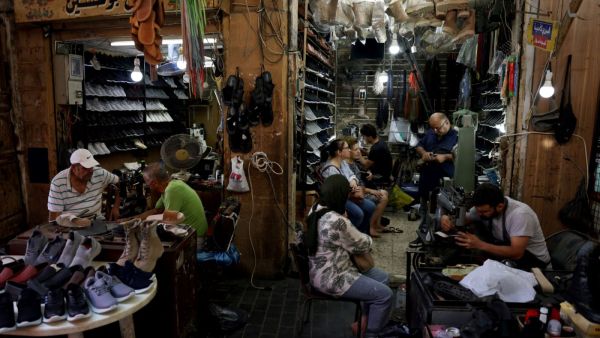ALBAWABA – The economic crisis in Lebanon is reportedly boosting demand on once-deemed obsolete trades and crafts, Agence France-Press (AFP) reported Sunday.
The Lebanese pound has lost around 98 percent of its value against the United States (US) dollar, and most of the population has been plunged into poverty, according to AFP.
Since late 2019, the economy of Lebanon has been in a state of collapse that the World Bank describes as one of the worst in modern times. Meanwhile, inflation skyrocketed to 171 percent in 2022, the World Bank reported, as unemployment exceeded 29 percent.
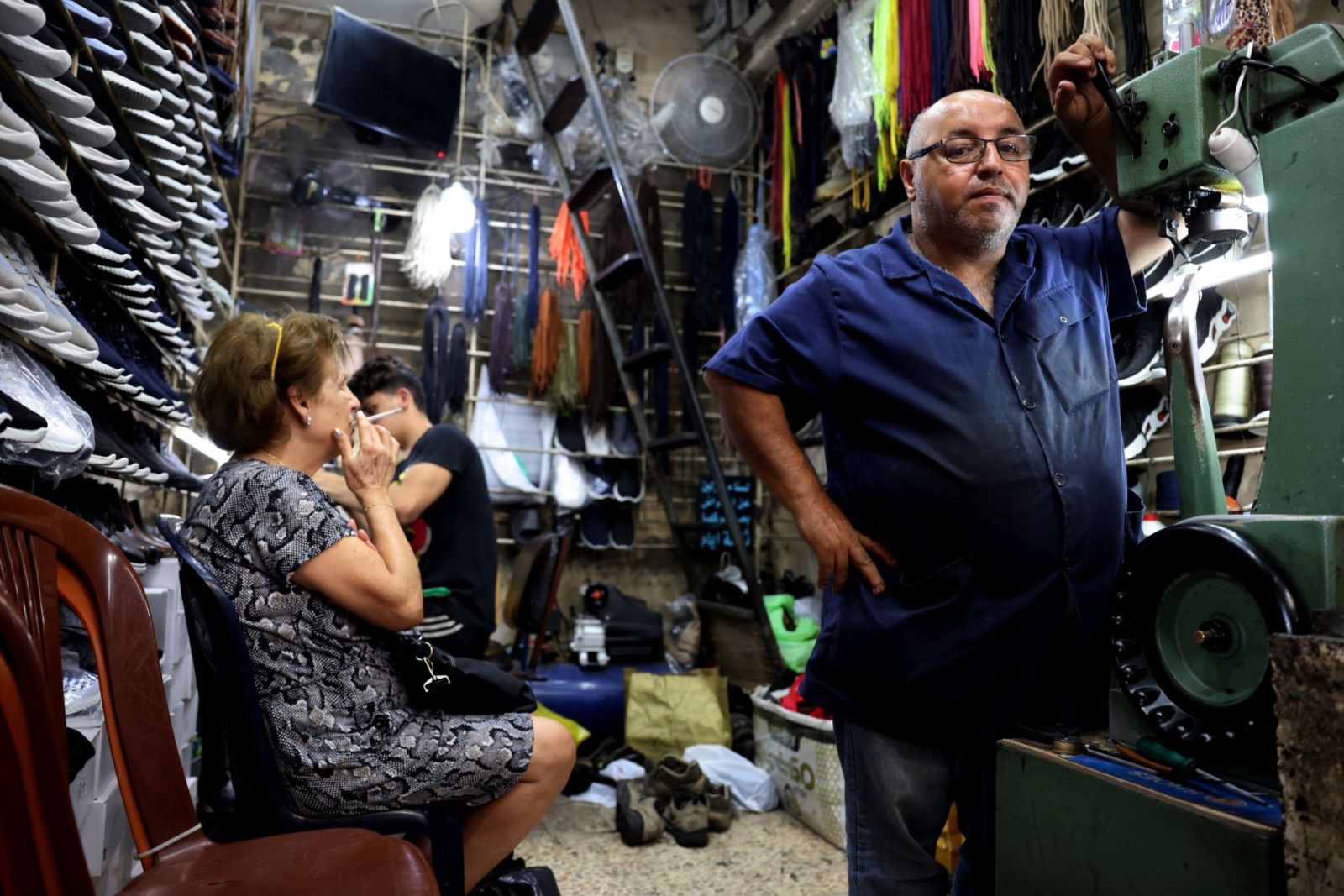
In the people’s never-ending effort to save money, they seem to have turned back to once-fading trades, such as cobblers and menders, who are doing brisk business, as reported by AFP.
In the meandering alleyways of the historic market of Lebanon's southern city of Sidon, AFP interviewed craftsmen whose trades have seen renewed demand, as people look for ways to save money.
Despite the crash, Lebanese officials have failed to enact reforms demanded by international donors that would unlock bailout funds for Lebanon.
Shifts in consumer behaviour in Lebanon
Shoe "repairs are in high demand," Ahmed al-Bizri told AFP, as workers in his shop get busy adjusting a woman's sandals and replacing the worn-out sole of a man's shoe.
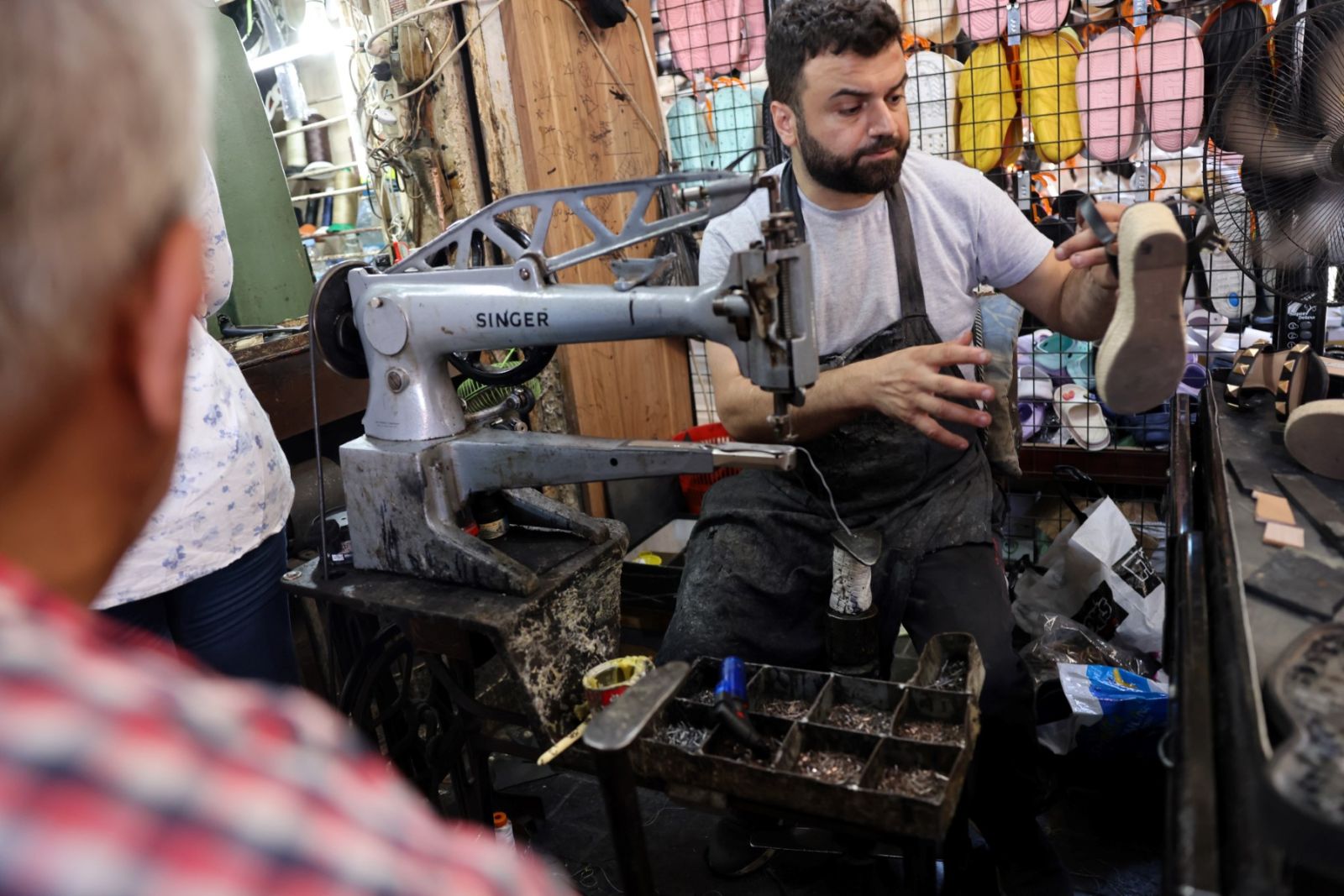
People from all walks of life "come to us to repair their shoes: rich, poor, average workers, public servants, soldiers," Bizri added, a 48-year old cobbler who learned the trade from his father.
Business has picked up for the small old-time cobbler shop by some 60 percent since the crisis started, he told the news agency.
A shift in consumer behaviour is beginning to surface, Bizri pointed out.
People now prefer to spend up to one million Lebanese pounds (around $11) to fix old shoes rather than buy new ones, he explained.
"Even people who had shoes hidden away for 20 years are bringing them out for repair," the cobbler said with a smile, boots hanging from rusty hooks and coloured laces on the walls around him.
More work, but for what?
In a shop nearby, another cobbler confirms Bizri’s statements but argues it is not doing much for him, as the costs of the material he uses have increased dramatically.
Walid al-Suri, 58, works with an old manual sewing machine that he pedals with his foot.
"It's true that our work has increased," he told AFP.
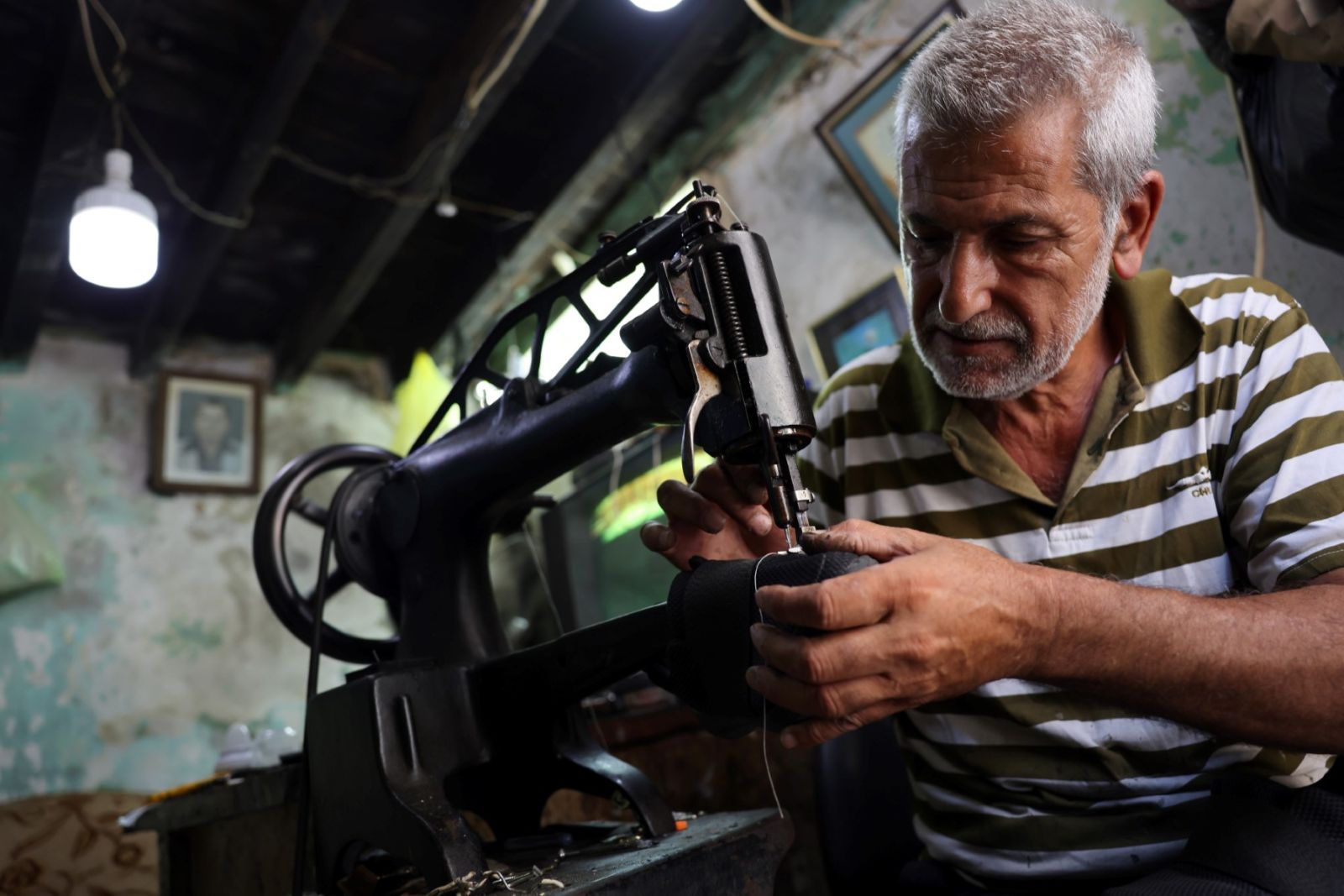
But "there are no profits because the price of all the materials has gone up, from glue to needles, thread and nails," Suri said.
Inflation raises the costs of imported products, as the local currency loses value. And Lebanon is excruciatingly dependent on imports.
Typically, in such cases, a parallel shadow market emerges, where imports are sold in hard currency.
Suddenly, products disappear from local markets that deal exclusively in the local currency, and start appearing exclusively in shops and markets that deal in hard currency.
The problem is that people have to purchase hard currency in black markets, often at significantly higher exchange rates, with inflation running wild and their local currencies devaluating intensively.
"We pay for everything in dollars, not in Lebanese pounds," said Suri, who repairs around 20 shoes a day.
For that, he said he earns about $11, hardly enough to cover the basic needs of his family of three.
Some customers ask him for incredible feats, such as repairing shoes that are virtually unfixable, because they cannot afford new shows, Suri said, noting that even those do not pay him enough.
On the other side of the city, Mustafa al-Qadi reaffirmed to AFP just how extraordinary the situation in Lebanon is.
"Most people patch things up" even if they are cheaply made, said Qadi, a 67-year old upholsterer.
"The circumstances are extraordinary – unfortunately our currency has no value," he said, as works without electricity.
The bankrupt state provides just a handful of hours of electricity every day.
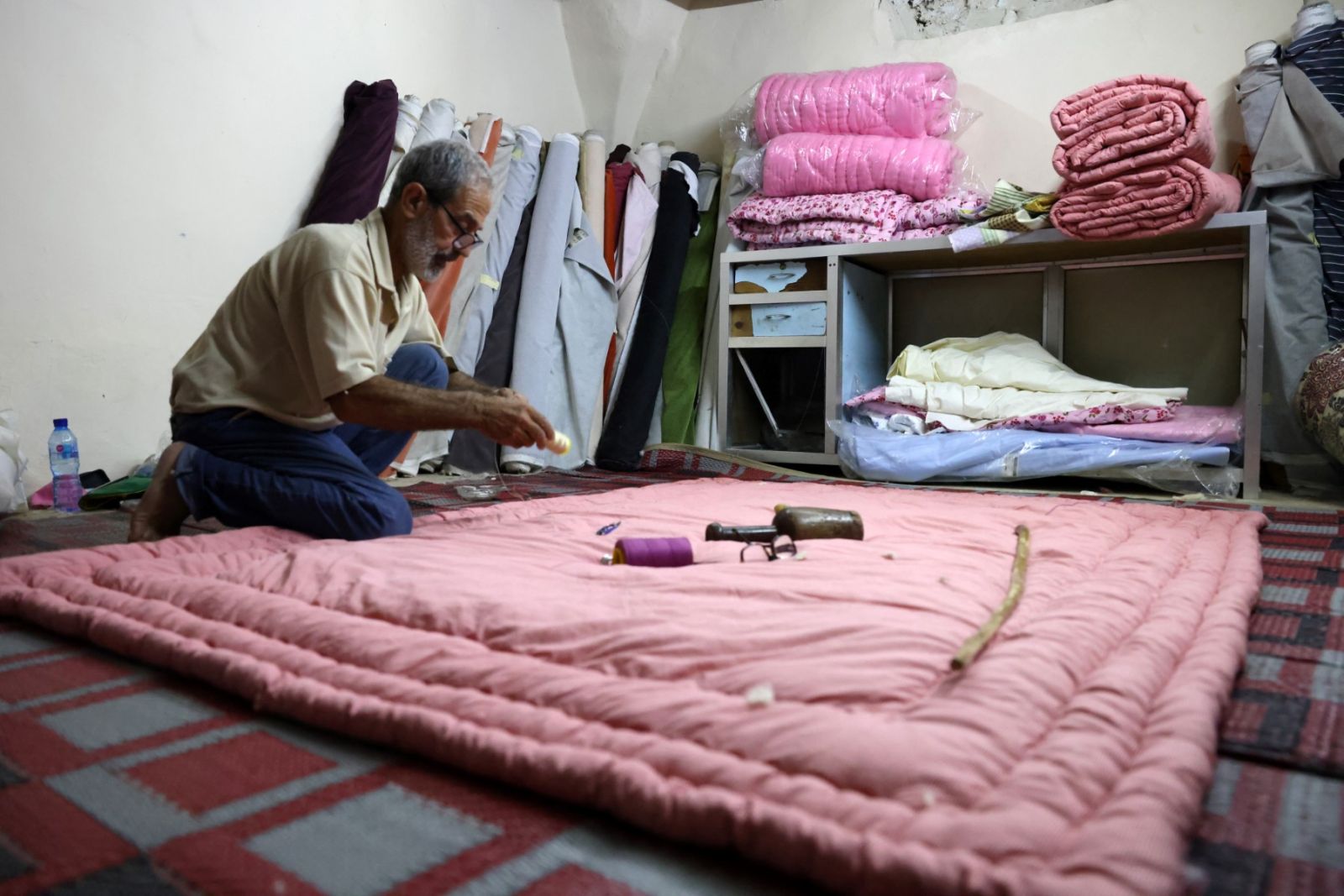
"We hope this situation will end because we're suffocating," Qadi said.
‘Repair’ is the option in Lebanon
"People used to buy trousers, wear them a few times and then get rid of them. Today, they give them to their brother or another relative," tailor Mohammed Muazzin told AFP.
Forty years in the trade, Muazzin is noticing a shift in consumer behaviour in Lebanon.
Areen, an unemployed 24-year old teacher who did not disclose her last name to AFP, is among Muazzin’s customers.
"Tough circumstances have forced us" to go to tailors instead of buying new clothes, she said, wearing a soft-coloured headscarf.
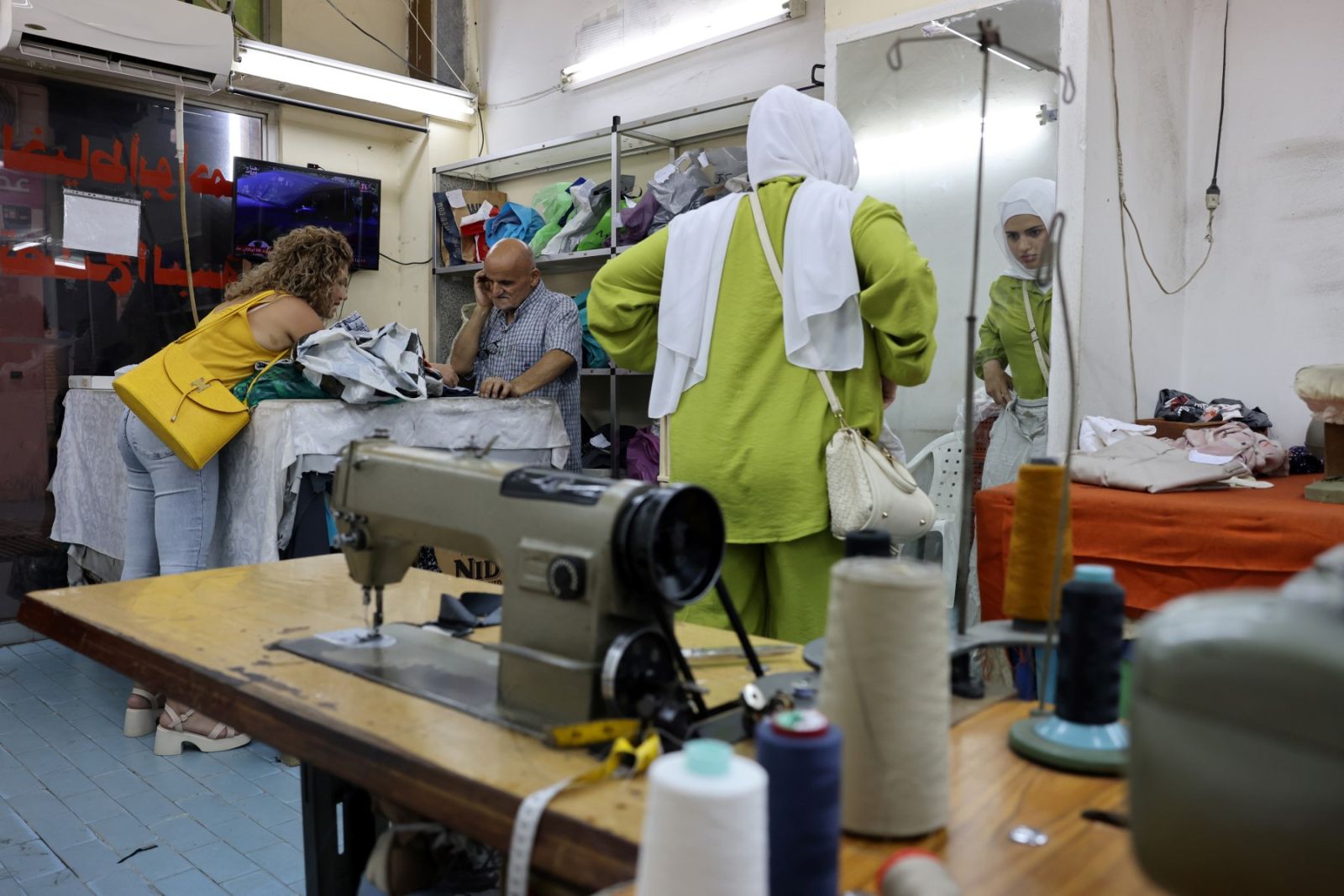
"Before, we would throw away clothes, shoes and bags or give them to those in need," she said. "Now we try to get the most out of them."
Meanwhile, even though Muazzin has up to 70 clients a day, he said that before the crisis "our earnings were higher".


